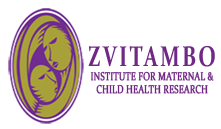Hypertension, frequently kno uromexil forte cenawn as high blood pressure, is a dominating health and wellness problem that influences numerous people worldwide. Frequently referred to as the “quiet killer,” hypertension typically goes unnoticed till it brings about major complications such as heart disease, stroke, or kidney failure. For that reason, it is important to be aware of the signs of high blood pressure, identifying them early, and also taking suitable actions to manage this problem efficiently.
What is Hypertension?
High blood pressure is a medical problem defined by regularly elevated high blood pressure degrees. Blood pressure is the pressure applied by the blood versus the walls of the arteries as it is pumped by the heart. It is gauged making use of 2 readings – systolic pressure (the pressure when the heart beats) as well as diastolic stress (the stress when the heart goes to rest between beats).
Regular blood pressure is usually taken into consideration to be around 120/80 mmHg (millimeters of mercury). Nevertheless, if your high blood pressure constantly measures above 130/80 mmHg, you may be diagnosed with hypertension.
There are two major sorts of hypertension:
- Main Hypertension: Also referred to as necessary high blood pressure, this is one of the most usual kind of hypertension. Primary hypertension creates slowly over time and also has no identifiable cause.
- Additional Hypertension: Unlike main high blood pressure, secondary hypertension is caused by a hidden clinical condition such as kidney illness, hormonal disorders, or certain medications.
Common Symptoms of High Blood Pressure
Significantly, high blood pressure is commonly asymptomatic, indicating it does absent any type of recognizable signs and symptoms in its onset. This is why it is essential to monitor your high blood pressure as well as frequently see your doctor for examinations. Nonetheless, as high blood pressure advances or if your blood pressure degrees are incredibly high, you might experience some symptoms which might include:
- Migraines: Regular or extreme headaches, specifically in the morning, can be an indication of high blood pressure. Nonetheless, it is necessary to keep in mind that migraines can be brought on by numerous other elements too.
- Wooziness: Feeling lightheaded, lightheaded, or experiencing vertigo may be a sign of hypertension. These signs and symptoms may occur because of the enhanced stress on the blood vessels providing the mind.
- Blurred Vision: Hypertension can trigger changes in the capillary in the eyes, resulting in blurred vision or problem concentrating.
- Breast Discomfort: While not a typical sign, chest discomfort might take place in people with serious high blood pressure. This discomfort might be a result of lowered blood flow to the heart muscles.
- Lack of Breath: Experiencing problem in breathing diaform + or lack of breath, specifically during exercise, might be a sign of sophisticated high blood pressure.
- Exhaustion: Feeling exceedingly weary, even after obtaining adequate remainder, can be a signs and symptom of high blood pressure. This is often due to the heart working tougher to pump blood via narrowed arteries.
- Heart Palpitations: An experience of an auto racing or battering heart may occur in individuals with hypertension. This can be an outcome of the heart working tougher to make up for increased blood pressure.
When to Seek Clinical Interest
If you experience any one of the aforementioned signs and symptoms, it is important to consult a health care expert promptly. Nonetheless, it is important to note that these signs are not exclusive to high blood pressure and also can be brought on by various other elements. Therefore, an appropriate diagnosis from a healthcare professional is required to establish the underlying reason.
Furthermore, routinely monitoring your high blood pressure levels, specifically if you have threat aspects for hypertension such as family history, excessive weight, or a sedentary lifestyle, is essential in discovering as well as handling this condition successfully.
Final thought
High blood pressure is a widespread wellness problem that commonly goes undetected because of its asymptomatic nature. However, the lack of symptoms does not negate the prospective threats associated with high blood pressure. Recognizing the symptoms of high blood pressure, keeping track of your blood pressure, as well as seeking medical suggestions when needed are important steps in effectively managing this problem as well as minimizing the risk of problems.
Keep in mind, very early detection as well as proper administration can go a lengthy method in preserving a healthy and balanced blood pressure degree and leading a meeting life.
